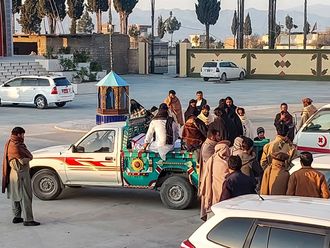
Karachi: After a 17-year pause, local government elections were being held in the 42 cantonments areas in Pakistan on Saturday to mark the phased beginning of general municipal elections and implement Supreme Court orders.
With 199 seats vacant, 1,151 candidates of the mainstream political parties have been contesting in the election to become the civic administration of the cantonment areas, which are otherwise owned by the military.
Some 12,000 army soldiers and paramilitary Rangers were deployed at polling stations across the country as all the polling venues were declared sensitive in view of the law and order situation.
Section 144 of the law was also invoked that prohibited gathering of more than five persons at a place.
The Supreme Court of Pakistan (SCP) last month had issued orders to the government of Pakistan, Election Commission of Pakistan as well as the provincial governments to hold the elections in their respective jurisdiction as per its schedule.
Under the apex court order, the local body elections had to be held in all the cantonment areas on April 25. The local government elections on the general constituencies are scheduled to be held on May 30, in Khyber Pakhtunkhwa province.
In the Punjab and Sindh provinces, the local government elections would be held on September 20.
Under the amended Pakistani constitution, which envisaged devolution of powers and decentralisation of authority, elections of the local governments had become mandatory.
However, federal and provincial governments refrained from holding the elections under one pretext or the other.
The court had in many proceedings accepted the governments request to extend the deadlines for holding the elections in the cantonment areas.
Nevertheless, in its last hearing, the apex court expressed its anguish over the delay.
The judges warned that they were deliberately exercising caution and restraint by not issuing contempt notices to the chief executive, but the court would not show reluctance in fulfilling its constitutional obligations if it was established that the judgement was flouted.












